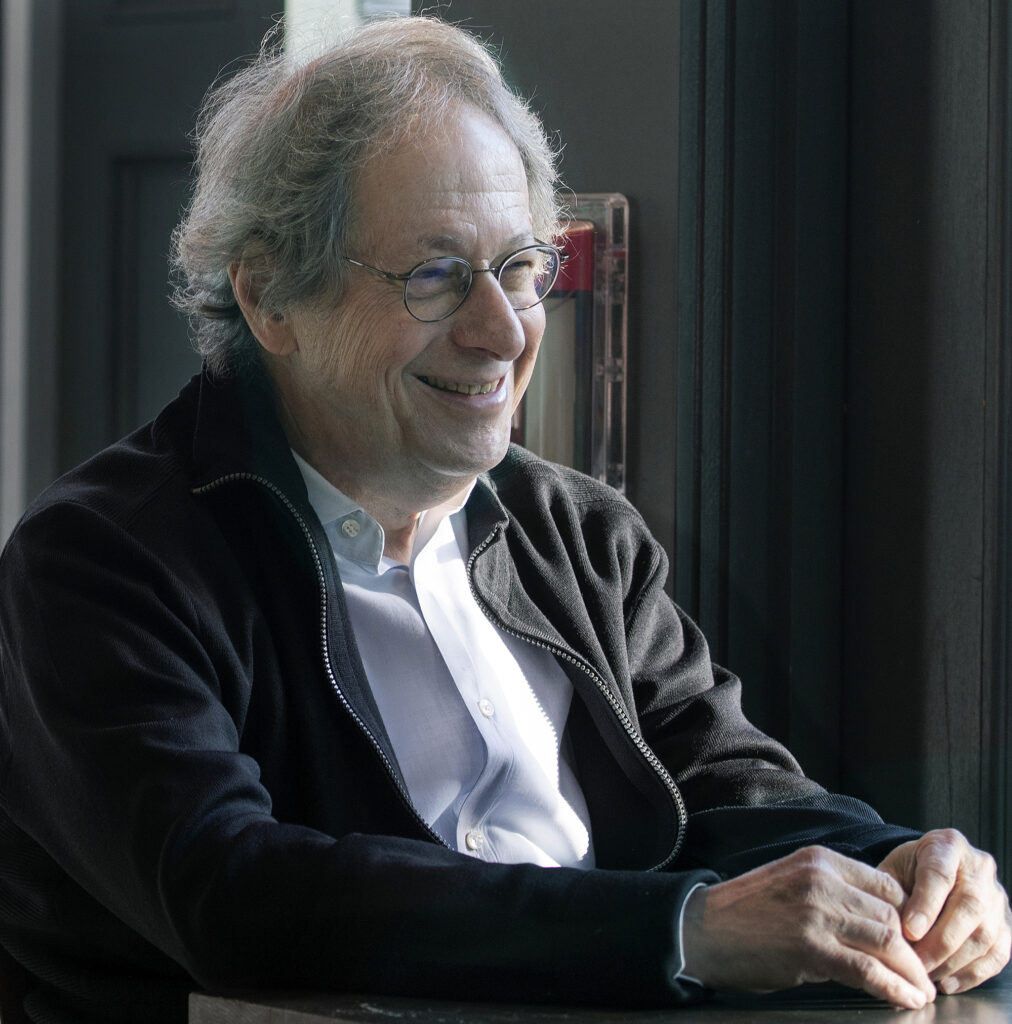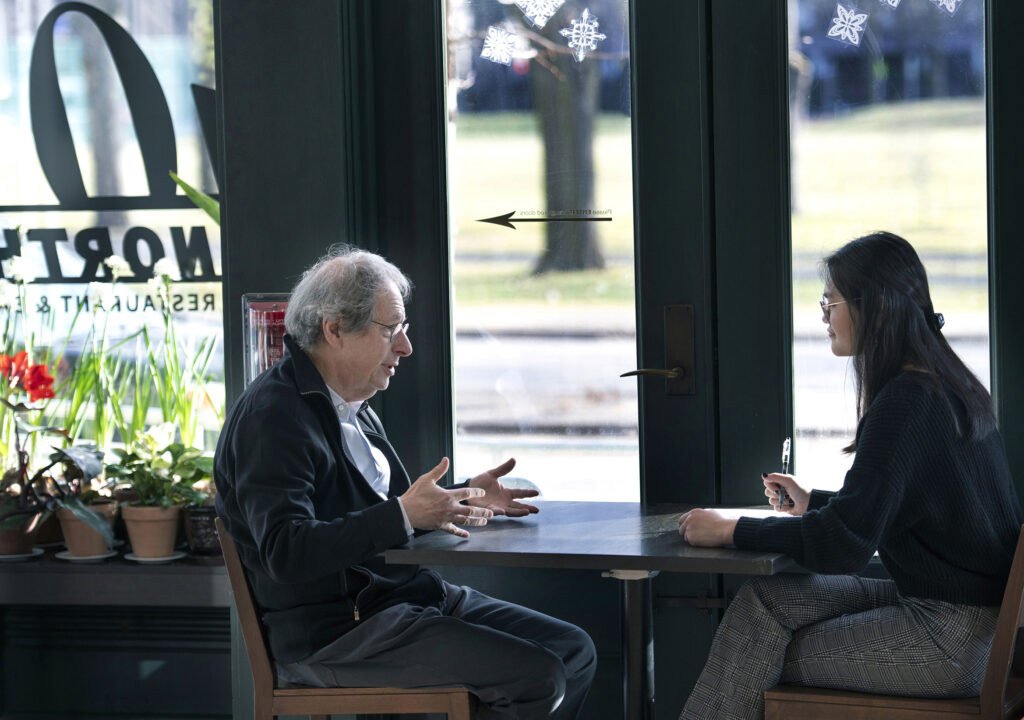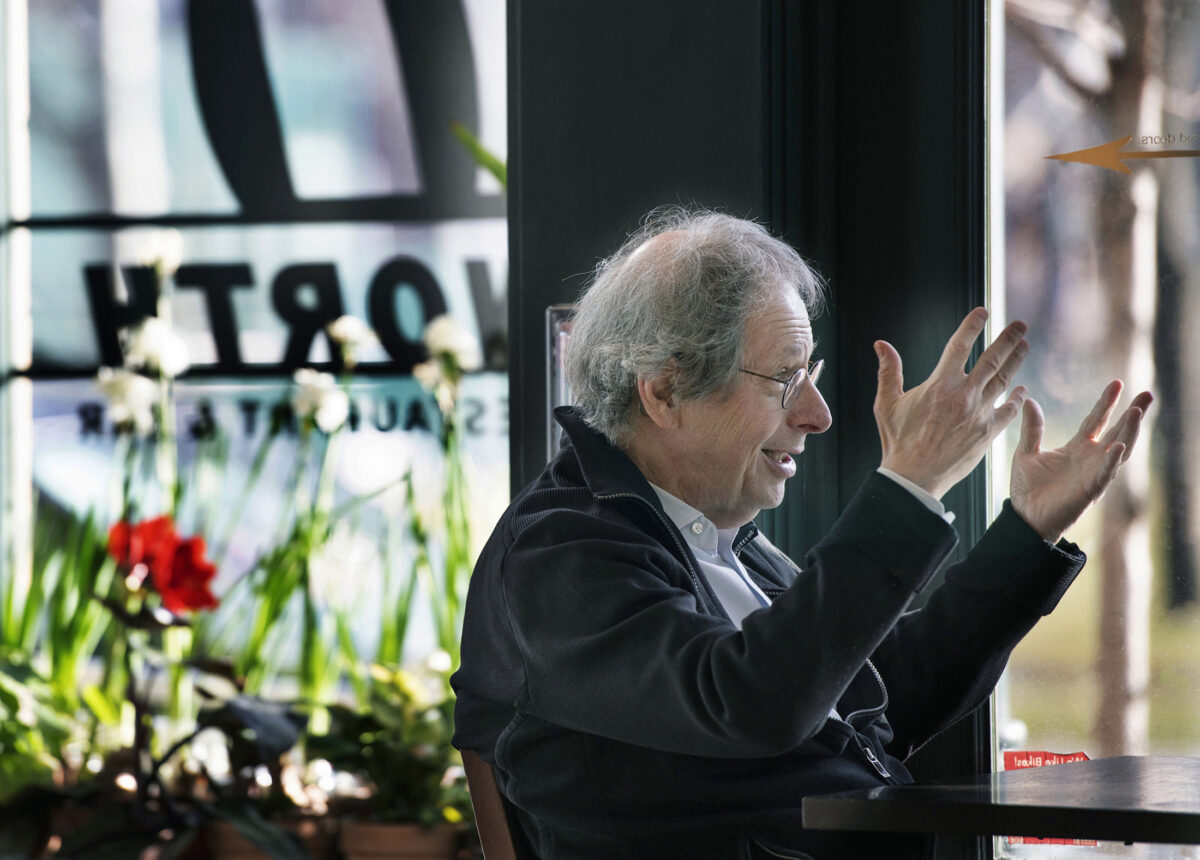Henry Reese has never been a good “life planner.”
Yet, the City of Asylum co-founder and president recognizes that his life has been consistent. From graduate school to telemarketing to City of Asylum, Reese has always had a passion for communicating narratives.
The Munhall native, 73, said he never imagined he’d be where he is today — nearly two decades into leading Pittsburgh’s City of Asylum, a residency program that houses and supports writers in exile from their countries.
For his undergraduate degree, Reese attended Johns Hopkins University to study humanities before moving north to graduate school at SUNY Buffalo to study cognitive linguistics.
In 1974, Reese’s brother persuaded him to go into the restaurant business with him. The two later started a competitive coupon business, which, after a series of accidents, led them to telemarketing. The brothers specialized in telemarketing for nonprofits and fundraising through public awareness campaigns before moving to commercial work.
In 1997, Reese and his wife, Diane Samuels, attended a talk by author Salman Rushdie in Pittsburgh. That’s where the seed for City of Asylum was planted.
“He talked very directly to the need of endangered writers,” Reese recalled. “He talked certainly about himself. Mainly, he talked about how the situation for himself was generically true of threats to writers, but he himself had more resources and more protection.”
Reese said Rushdie was a leader in the International Parliament of Writers, a group of intellectuals who started a network of support called Cities of Asylum, originally to protect Algerian writers.
Reese said he and his wife had acquired a property on Sampsonia Way that used to be a crack house. Their vision was to rehabilitate the house and “kind of change the neighborhood but also control what would happen to make sure the narrative did get changed.”
“You know how sometimes you kick underneath a chair when you’re with someone? Well, we both did that when we heard this,” Reese said. “It’s like the same idea occurred at the same time. We had this house, what better use?”
Shortly after attending Rushdie’s talk, Reese composed an email to the program’s administration headquartered in Paris. Nobody wrote back, but as time went on, Reese said he would think about the program and send off another email that would go unanswered.
Around 2002, Reese and his brother sold all but one of their businesses. At the same time, Reese said he became interested in Pittsburgh’s repopulation and taxation. He wrote and circulated a white paper on Pittsburgh being a transplant city.
“It took its inspiration from the idea we’d invented transplants, but why aren’t we doing that with people and relocating people here, taking people from hubs of immigration who were in expensive cities and trying to remigrate them to a more livable place?” Reese explained.
As Reese and his brother were about to sell their headquarters building, which was located in today’s Cultural District on the 900 block of Penn Avenue, Reese had the idea to turn the building into a cultural institution. The space would provide residency to well-known creators for a year to work with the Downtown cultural institutions and create new work. But this vision never took off, forcing the brothers to sell the building.
Yet, as the saying goes, as one door closes, another one opens. After years of radio silence, Reese finally received a response in 2003 regarding City of Asylum.
“Now, out of the clear blue, I get an email from France, saying Russell Banks, the American writer, who is now the head of the International Parliament of Writers, wants to expand the program in the United States,” Reese said.

After replying, Reese said he immediately heard back from Banks, and by the next spring, Reese was meeting leaders and organizers of the program as they began to determine if Pittsburgh was suited to become a City of Asylum.
Reese said his model for Pittsburgh was different than existing Cities of Asylum in Europe, as it wasn’t institutionally funded or government approved.
The two other City of Asylum locations set to open in the United States — Las Vegas and Ithaca, N.Y. — were to be sponsored by universities.
“I said, ‘This is not going to happen to us, this is not a good model, and if that’s the model you want, we can’t do it,’” Reese said. “Our goal is to go to a community-based organization that’s grassroots and funded that way.”
Reese has always believed Pittsburgh to be a livable and affordable place with a strong literary scene, so establishing City of Asylum in Pittsburgh felt like a solid gamble. Since its creation, Reese has seen Pittsburgh embrace the program’s mission of freedom of expression and fervently welcome writers.
“I think it gets to the core of what American society, in general, believes. So I’m not sure that it’s necessarily unique, other than it engaged here and we were fortunate in some of the choices made in the support from both the foundation community early on and from the public,” he said.
They got lucky with their first guest writer, poet and philosopher Huang Xiang, in summer 2004. Reese said Huang wanted to be in public to share his work, and the poet painted calligraphy on the outside of his house.
“He wanted to thank the city of Pittsburgh for kind of setting him free and making him creative again, so he created that which became a landmark of sorts, which we hadn’t really thought about,” he said. “All of a sudden we have a marketing device that says, ‘We’re here,’ and he began to perform at his house all the time on the street, too.”
Huang would jump out on the street to perform Chinese poetry as people passed by the house, Reese explained. This began to attract community attention, and people invited Huang into their homes.
Despite speaking no English, Huang “was somehow engaging with the community in a deeper way than we ever imagined was possible,” Reese said.
From this, Jazz Poetry was born. That first year of the free event, the program took place on Sampsonia Way with Huang performing his work and musician Oliver Lake and other artists playing jazz music.
“It started, and there was almost no one there, and it turned around and saw 300 people and the chairs were all filled,” Reese said. “I was getting free-form comments … saying, ‘This was the most important thing I’ve ever done in my life. It got to the core of my humanity.’”
The next year, a second house was added to the program. Diverging from the European model, which allocated two years of residency, Reese said they changed the Pittsburgh program so that artists could stay in the houses as long as they needed to until they became stable and independent.
“That became something really fundamental,” he said. “Our commitment now is to outcomes not to emergency. Emergency is the provocation. Outcome is the goal.”
Reese also emphasized that the artists in residence are strong, independent people, and by providing assistance and resources, City of Asylum is a facilitator.
“These people are extraordinary and resilient; they look at what they’ve done in their own country and how they’ve survived. These are not people who need our help in that sense,” he said. “It’s turned out, they bring at least as much to us as we’ve brought to them.”
Chris Gribble, chair of the International Cities of Refuge Network, has known Reese for over a decade and is a self-proclaimed fan of him and Samuels. Watching Reese, who is also on the ICORN board of representatives, and Samuels develop City of Asylum has been both educational and inspirational, Gribble said, and he has enjoyed the friendship that has come out of working together.
“They took a model that we hadn’t used in Europe before, and they’ve really made it work, and it’s been fantastic and instructive to watch it develop,” Gribble told the Union Progress from Norwich, England. “I think that [Reese] is an absolutely passion-driven individual and that sense of mission about what they’re there for, about their support and promotion and protection of those writers and artists at risk runs through City of Asylum from top to bottom. Nobody is under any kind of illusion about what it is that they’re for and what work they do and how great they are.”

Since 2004, City of Asylum has hosted about 15 people in the core sanctuary program and thousands of others through general programming.
Demand for programs and readings became so large that City of Asylum raised money to purchase land on West North Avenue to construct a building that would become Alphabet City. Today, Alphabet City contains a bookstore of translated works and a restaurant, as well as spaces for readings, performances, writing workshops and residencies.
“From a moral or vision point of view, the idea of what we do is crossing borders so all these spaces, just like all of our other programs, there are no borders,” Reese explained. “You can easily migrate from one space to another so the whole thing was meant to kind of embrace everything we had set out to do and learn from it.”
Currently, five “published” houses sit on Sampsonia Way, all rehabilitated and covered in commissioned artwork. Eventually “Sampsonia Way will be transformed into a public library of published houses that can be read while walking down the street,” City of Asylum’s website reads.
“It’s possibly the largest city of refuge designation in the world,” Gribble noted. “It helps the most writers of all of the network cities. It’s got a brilliant modus operandi. It’s got a wonderful community setting. It’s got a brilliant physical setup. What more could you ask for it?”
“Henry and Diane have given it such a solid base in the city and in its supporters and funders and its structures,” Gribble added. “I really hope it continues to thrive and flourish. It already is a beacon in North America for freedom of expression and literature. I think it will grow further.”
Pittsburgh’s response to the program and mission has been remarkable, Reese said, as many others share the vision.
“It has been something that’s allowed us both to grow and also given us the energy to say it’s worth growing,” he said. “We can all share the idea. Ideas are really kind of cheap, let’s face it. It’s the doing that matters, and the power of the community is necessary to sustain it or the whole model falls apart.”
“It’s so obvious there’s a real pride in what is being done there,” Gribble said on Pittsburgh welcoming City of Asylum. “What a phenomenal legacy to have Sampsonia Way, City of Asylum, Alphabet City, that whole community, and that whole urgent moral legacy of what they’ve achieved I think is just brilliant.”
Reese said when he was in nonprofit telemarketing, their work would focus on engaging with other people to convert active transaction into participation. This can also be found in his work with City of Asylum.
“Here, the philosophy was ‘Do not charge for programs,’” he said of the organization’s goal to protect and celebrate the freedom of expression. “When you make a donation, it’s because you support our mission, not because you’re coming to a program. All those values and learning how to communicate in a more structured way to people to engage them is something that I learned during graduate school … I was looking at how different cultures told the same story. How do you structure narrative?”
Reese and Rushdie were on stage at the Chautauqua Institution in western New York for a lecture last August when Rushdie was attacked. Rushdie, who is the subject of a fatwa calling for his death over his novel “The Satanic Verses,” suffered multiple stab wounds and was rushed to a hospital. He survived the attack but lost sight in one eye and movement in one hand.
Reese got a black eye and several stitches as a result of holding down the legs of the attacker, who had rushed on stage.
Months later, during his January interview with the Union Progress, Reese reflected on the incident.
“You appreciate extraordinarily, meaningfully what danger means,” he said. “Imagine what it’s like to live in a country where you’re under threat every day, and now to see what happens here when you do not really think that could happen in a place where you absolutely can’t imagine it’d happen. You understand how important it is to engage in the mission we have with a new dimension and a new emotional content.”
Gribble noted that due to Rushdie’s role in the formation of City of Asylum, it seemed strangely appropriate that Reese and Rushdie “were together at that moment.”
“It was really shocking on both sides to know that Salman had been attacked but also that Henry was part of it,” Gribble said. “But there’s been a huge rallying round of support. … He’s got this enormous gratitude and admiration for what he and Pittsburgh and his partnership with Diane has achieved.”
He called Reese’s voice in the mission quiet, persistent and long-term.
“He really deserves any and all honors coming his way because he is such a modest man, and yet what he’s done is just so significant,” Gribble said. “It takes a huge amount of energy to create and sustain these projects. He’s just an absolute battery. He never gives up. He just keeps on powering ahead.”
On a more personal level, Reese said the attack made him feel like he has less time to address the mission. Through his position on the City of Asylum’s board of directors, he said he has been trying to help the organization grow and transition while maintaining its core values.
“It’s the same entrepreneurialism that I was always engaged in, it’s just more amplified,” he said. “What change do you embrace? How do you embrace change? How do you grow and how do you not become complacent? How are you willing to take risks, just like the writers take risks? Change doesn’t occur without risk.”
“That’s a hard thing to inculcate, but it’s more real to us than ever. This transition of the organization from founders to permanent staff, that they understand that that is important. While we want people to certainly respect what we do, we want them to respect the reality of today.”
Hannah is a reporter at the Pittsburgh Post-Gazette, but she's currently on strike. Email her hwyman@unionprogress.com.


